A chat with one of the first women to join the SLAF
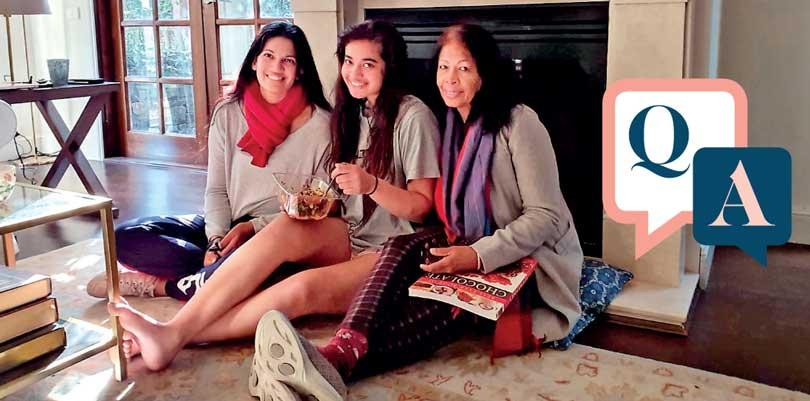
 Forty nine years ago, four women, including Indhira de Silva, made history by being the first Sri Lankan females to join the airforce, paving the way for countless young women to bravely follow in their footsteps. In a special interview with the Daily Mirror Life, Indhira recalls her experiences during her years in the Sri Lankan airforce.
Forty nine years ago, four women, including Indhira de Silva, made history by being the first Sri Lankan females to join the airforce, paving the way for countless young women to bravely follow in their footsteps. In a special interview with the Daily Mirror Life, Indhira recalls her experiences during her years in the Sri Lankan airforce.
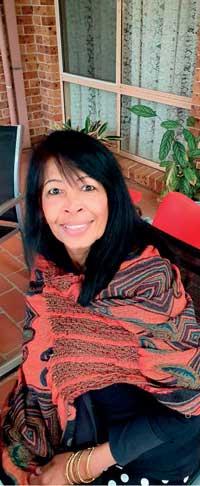 Q What was your life like growing up?
Q What was your life like growing up?
Life was good growing up. Every single school holiday we were away mostly to the wildlife parks. We became wildlife enthusiasts and could identify all the endemic and migratory birds. My father always had G.M Henry’s “Guide to the Birds of Ceylon” close at hand. Thanks to our parents we travelled the length and breadth of Sri Lanka and were able to appreciate its beauty, natural resources and of course meet and interact with people from all areas, cultures and ethnicities and learn about different customs. The Sri Lanka I grew up in and as I experienced it was decent and dignified. There were no toxic divisions within our circles even though we came from different ethnic and religious backgrounds. We made genuine friendships and those friends I made nearly half a century ago I’m still friends with now.
We are 4 girls and 2 boys and my parents were conservative and strict disciplinarians. Getting permission to go out, especially to mixed parties, was a song and a dance. That kind of discipline was perhaps due to my father being in the Police Force and my mother being a teacher in the same school I attended. Nonetheless, when I had children of my own, I appreciated this upbringing.
Q What were your aspirations as a child?
I loved to travel, see new places and meet different kinds of people. I wanted to do something in relation to that. We were taught growing up to be good responsible citizens first live with honour and integrity and then to follow our passions. Even though gender bias was and still is a systemic problem, at home and at school we were privileged not to see gender as an immediate barrier to following our chosen path. As I was the eldest in the family my parents were still quite young, and they were outgoing and adventurous. I grew up seeing my mom go to work each morning, I saw her ride horses, I saw her reading Shakespeare, writing and telling stories, reciting poetry and living her life, managing her household and pursuing her career. So, I was privileged and lucky enough to think that was the norm.
Q What made you want to join the AirForce? Especially considering the fact that there were no females who had joined the Sri Lankan air force before you?
I always wanted to do something different, something out of the ordinary. Since there were no females in the Sri Lanka Air Force at the time, that was precisely why it became a challenge and the reason I wanted to join. I admit at the time in the early 70s it was a daring thing to do. Colombo society may have quietly gasped. But we had been taught that gender was no barrier, and my parents supported my decision as well. Apart from that it was an exciting prospect to be able to fly for your country. I wore the Air Force uniform proudly. Now we would have two family members in uniform. My father and myself. I was proud to serve my country, Sri Lanka, that I love.
Q How did your family react when you joined?
While my parents were very strict in most things, when it came to my career, they were very supportive. I was pleasantly surprised by this support. I knew they had no problem me being one of four women to join the Air Force, but I thought they would never allow me to leave the home to stay in Air Force premises in the Katunayake Air Force base where I was getting my training. They of course made sure to visit me in Katunayake.
Q What was the post you were assigned when you joined and what was your career progression?
I was recruited as a Pilot Officer – I left the Air Force with a rank of Flying Officer. We were four female officers and we trained at the Katunayake Air Force base. After several weeks we had our ‘Passing Out Parade’. I took great pride and joy in wearing the Air Force uniform.
One of the conditions of entry was that we had to leave when we married. So, when I got married, I had to leave the service but continued in the travel industry.
We were based at Air Force Headquarters in Colombo and was attached to the Commercial Wing - Helitours. Many Tourists, especially Germans visited Sri Lanka and would spend one week in Sri Lanka and one week in the Maldives. It was our division that handled the bookings, informed the relevant squadron of the passenger numbers, managed catering, prepared the passenger manifest and also accompanied the tourists on the flight. Apart from that we would manage the transport for the head of State then the Prime Minister of the country, the Governor General and Cabinet Ministers and other officials. We flew the Maldivian Head of State as well. We also trained the Maldivian flight crews. We accompanied these high government officials, liaised with the squadron and catering sections and was responsible for making other necessary arrangements. When not flying we were assigned to administrative duties in our department.
Our services were also relied upon for special occasions or projects. For instance, when the Bandaranaike Memorial International Conference Hall (BMICH) was being constructed by the Chinese, a delegation arrived in Sri Lanka and the Air Force was involved in that too. Another officer Merril Fernando (brother of wing commander Noel Fernando) and I were responsible for this delegation.
The late Wing Commander Noel Fernando was our Boss / father / mentor / friend. He always had fatherly advice. When I received my first salary he said, ‘with your first salary you must invest by buying gold’ and I did that. He is greatly missed by us all. There was not a person Noel did not know. He was a gentle, kind and considerate person - one of a kind. He could get just about anything done. He was also helpful to everyone who needed his help or advice.
Q How was life in the airforce? Especially considering you were among the first women to join the Airforce?
At the start I felt very awkward and uneasy as we came from sheltered homes and we were the only 4 females amongst all these men. However, I must say we were treated extremely well. The four of us were given one office and a vehicle was at our disposal whenever needed. Some of the male officers may have felt we were getting preferential treatment or encroaching on their territory. This is to be expected with anything new as until we joined it was a purely male dominated area. And that alone was a challenge in how we handled these situations. I must and it’s my duty to acknowledge the vision that the then Commander Air Vice Marshall Paddy Mendis had - this initiative was his brain child and I thank him for it. Many more females have now been recruited.
Q What were the challenges you faced?
Looking back, I don’t remember anything being a challenge as such. I do remember during training we had to jump from a high springboard into the deep end of a swimming pool. Good gracious I was mortified - even though I was wearing a life jacket - I could not swim then, I was at the time terrified of water. I told them that the only way they can get me to jump from that springboard was if someone was in the pool already waiting for me to jump. I was finally able to jump.
Q What was the most memorable moment for you?
Memorable in a positive sense was actually everything as no two days were alike. Every day was remarkable in its own way. Work was varied and we worked with a positive outlook. Once I remember flying to the Maldives with some tourists - we had just landed in Male and got to our accommodation where we were staying overnight, we were having a very late lunch - when we heard over the intercom …. ‘Air Force Crew needed, Air Force Crew needed.’
We hurriedly left our lunch and headed to the reception only to find that one of the tourists had drowned while snorkelling. It fell upon us to manage the transport of the dead body back to Sri Lanka. The aircraft we came in was a Riley which is a very small aircraft with a capacity of 14 on this occasion carrying about 12 tourists.
The passenger seats on one side of the aircraft had to be taken out to accommodate the dead body. Being a Muslim country Maldives did not embalm bodies and as such the body was put into a long box and nailed down. Due to the size of the aircraft the box occupied one whole side. His family and I sat on the other side.
While all this was being done, we were in constant contact with headquarters relaying what was taking place on our side. Arrangements were made for the body to be transferred from our aircraft directly to the Condor which was at Katunayake Airport. It was rather late when we left - it was very sad indeed to see the wife and the three young children on the flight accompanying the body of their husband and father.
I had never experienced anything of this nature before. I must admit I was terrified and we flew in the night. It was sad and gruesome. I was so very relieved when we touched down at Katunayake Airport. The body was transferred to the Condor and the bereaved family left for Germany that night.
Q What do you think your greatest strengths are? Surely, being the first woman to join the air force would have required a certain resolve?
I think I’m a confident person and fearless in many ways. I’m still afraid of large bodies of water though. We were taught as kids to work hard, do whatever we did to the best of our ability and that hard work was its own reward. Doing different and unusual things is what I liked and enjoyed doing. Remember too that it was a simpler time and Colombo society was softer and gentler then. We did not ponder too much. I was very young and simply wanted to gain life and work experience which I did in abundance, and I wanted to find out what was out there through travelling and meeting new people. Apart from my mother’s example we were constantly flying a woman Prime Minister and Head of State. So, for me, women leaders were present in my life and work. Mrs. Sirimavo Bandaranaike was a formidable lady and at that time she too was fearless and a commanding figure. I remember on one such flight, it was on a Heron or a Riley - they are small Aircrafts with a capacity of about 14 - there was PM Sirimavo Bandaranaike, her brother Mr. Mackie Ratwatte, Mr. W.T Jayasinghe, Mr. Anurudha Ratwatte and about three other government officials.
As soon as we took off and wheels were up, as expected I made the customary speech which anyone who has ever flown will be familiar with. But at that time – half a century ago - everything was new and shiny and it was not just a set speech read off a piece of paper, we were also able to add to suit the occasion.
I welcomed them all on board the Air Force Aircraft - the speech was short and sweet; I remember they applauded. I also very well remember Mr. Mackie Ratwatte, Mr. Anurudha Ratwatte and PM saying, “Well done Ladies College,” and Mackie said “I must tell Shelton” (my father). My father and Mackie were class mates and friends from Trinity College.
I promptly felt very secure and my nervousness left me completely and I felt quite at ease – from then on, we were in fact laughing and joking. It was a very different era. It is a testament to the kind of person Mrs. Sirimavo Bandaranaike was that when we landed and they were disembarking, Mrs Sirimavo checked with the ground staff if a vehicle was there to pick me up, it was only when she saw the vehicle and was assured of my safety that she got into her vehicle and left. In my experience she was a very caring person and having flown her to several destinations during my time in the Air Force I have a very high regard and respect for her.
Mrs Sirimavo also never forgot those days. She invited me and my family to Rosmead Place. I remember it was rambutan season. As we were leaving, she gave me two huge bags of rambutans which I did not refuse - I love rambutans. By this time, I had left the Air Force, was married and had two children. We remained friends till she passed away. She was a great lady, world's first female Prime Minister. We as Sri Lankans have everything to be proud of.
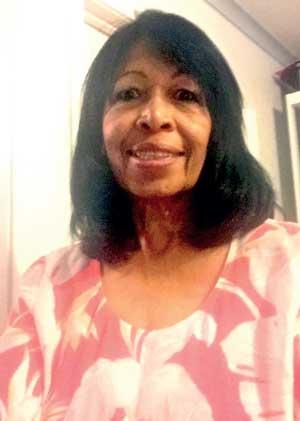 Q Do you see a huge difference in how far women have come from the time you joined the air force and now?
Q Do you see a huge difference in how far women have come from the time you joined the air force and now?
While I think there is more to be achieved, definitely, women have shattered the glass ceiling. It’s wonderful to see women flying planes for instance. I encourage all women to pursue any field or path they choose and are passionate about. I think society is evolving - albeit slower than it should - and stereotypes are being pulled down. What was once thought of as a ‘man’s job’ is no more because of pioneering women who have dared to dream. Women now have a seat at the table and it is important that they use their collective voice to support other women. Also, fifty years ago in Sri Lanka, the influences of British colonialism and the iniquity of class, caste, school and language hung heavy in the air. Opportunities were there but alas only to a chosen few. Thankfully opportunities are a lot more equitable today and people from around the country are able to seek a better future and shatter barriers. We have to continue this momentum. What we did fifty years ago was take that first baby step. Everything starts with a first step.
I was recruited as a Pilot Officer – I left the Air Force with a rank of Flying Officer. We were four female officers and we trained at the Katunayake Air Force base.
Q What advice would you give women who are struggling to thrive in male dominated industries?
Never be diffident, do not hesitate -be definite, be confident. Men and women bring different strengths to the table. Have a positive mindset that you can climb the ladder even if you are outnumbered by your male counterparts. Challenge traditional gender roles and behaviour. Ask for a well-deserved promotion or raise, that is what a man would do. Speak up at meetings. Take and accept credit for your hard work. Talk to people, boldly make connections, and always, always support other women. Barriers are only a societal construct.
I also would like to add whether man or woman one must have a set of core values - Integrity, honesty, perseverance and genuine enthusiasm. And in whatever you may put your hand to it needs to be country FIRST, after all, “This land is your land, this land is my land”.
In July 2022 it would be fifty years since we the first women joined the Sri Lanka Air Force!
Photo courtesy
Indhira de Silva

 Forty nine years ago, four women, including Indhira de Silva, made history by being the first Sri Lankan females to join the airforce, paving the way for countless young women to bravely follow in their footsteps. In a special interview with the Daily Mirror Life, Indhira recalls her experiences during her years in the Sri Lankan airforce.
Forty nine years ago, four women, including Indhira de Silva, made history by being the first Sri Lankan females to join the airforce, paving the way for countless young women to bravely follow in their footsteps. In a special interview with the Daily Mirror Life, Indhira recalls her experiences during her years in the Sri Lankan airforce. Q What was your life like growing up?
Q What was your life like growing up?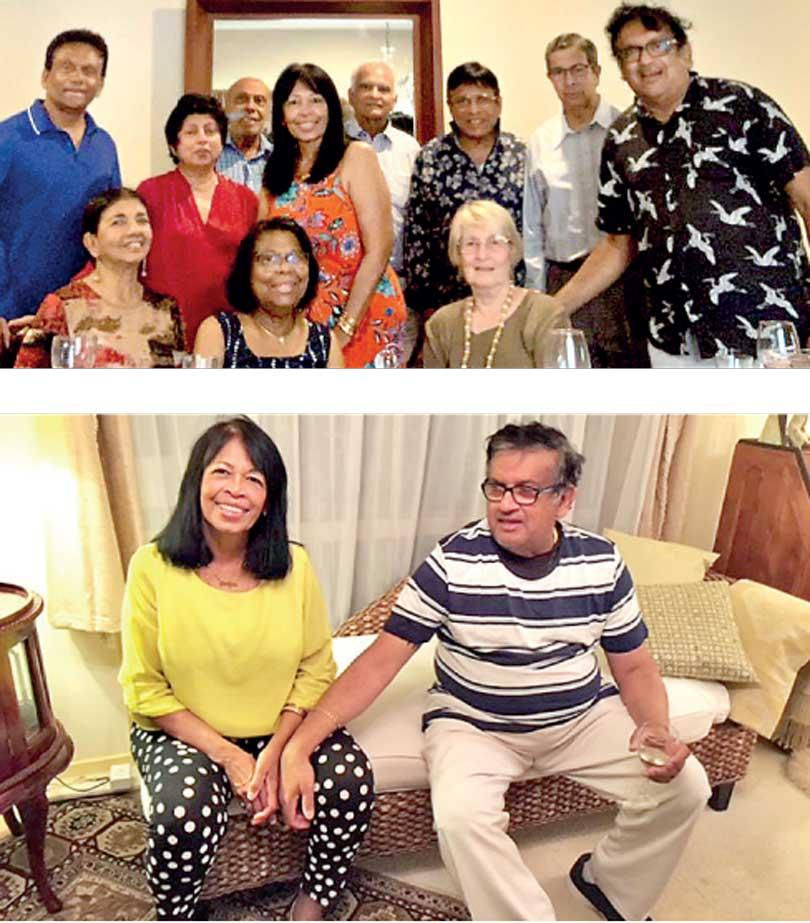
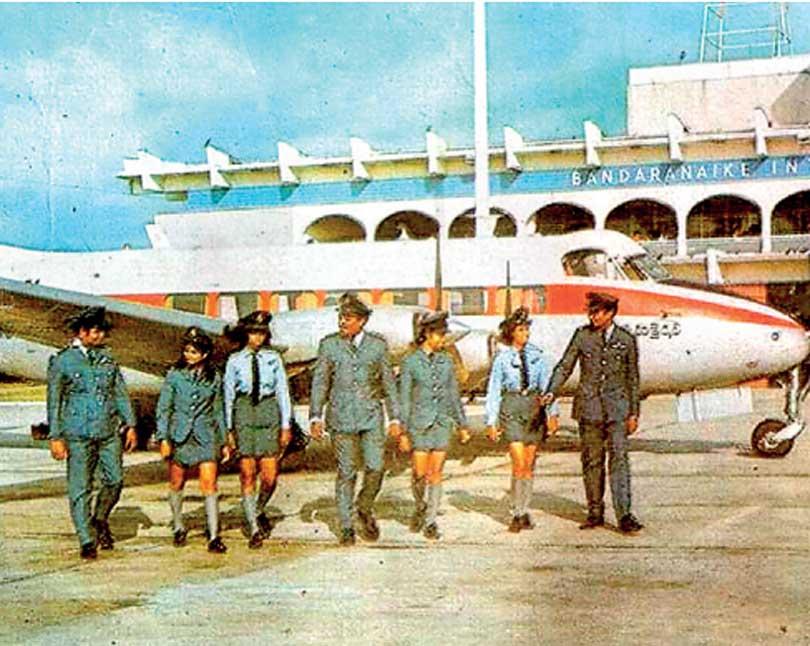
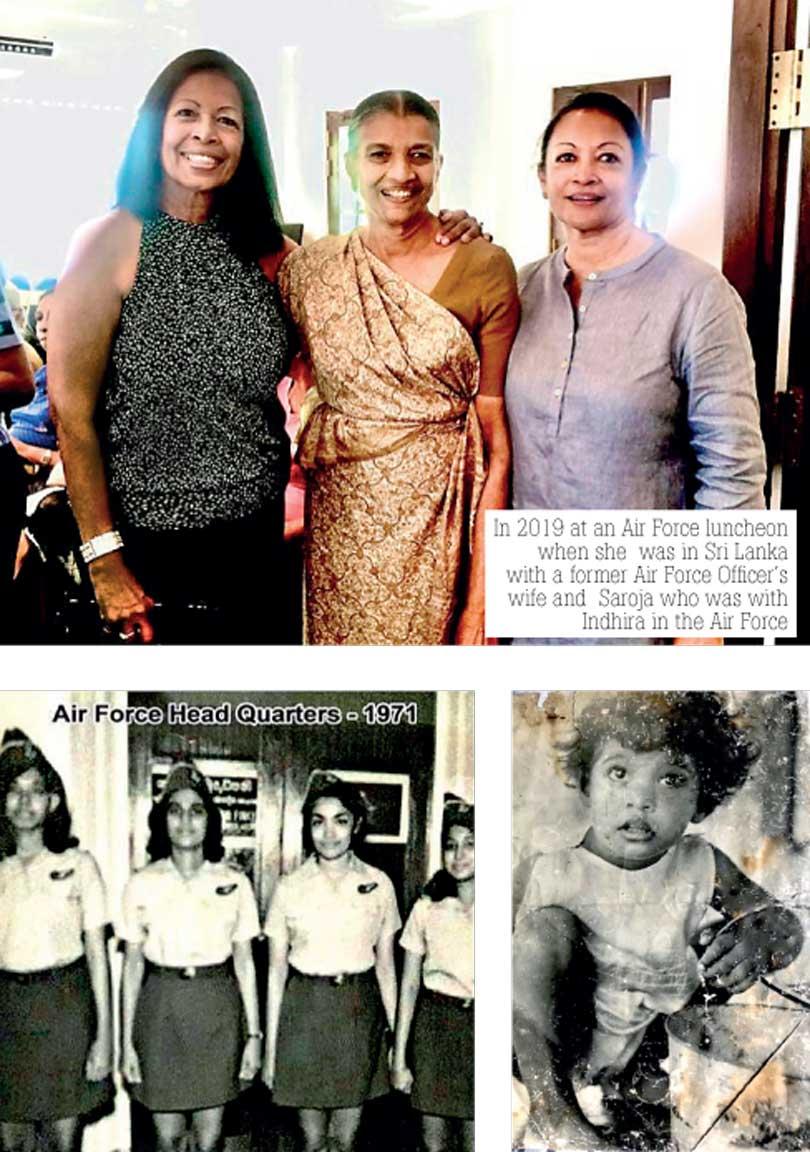
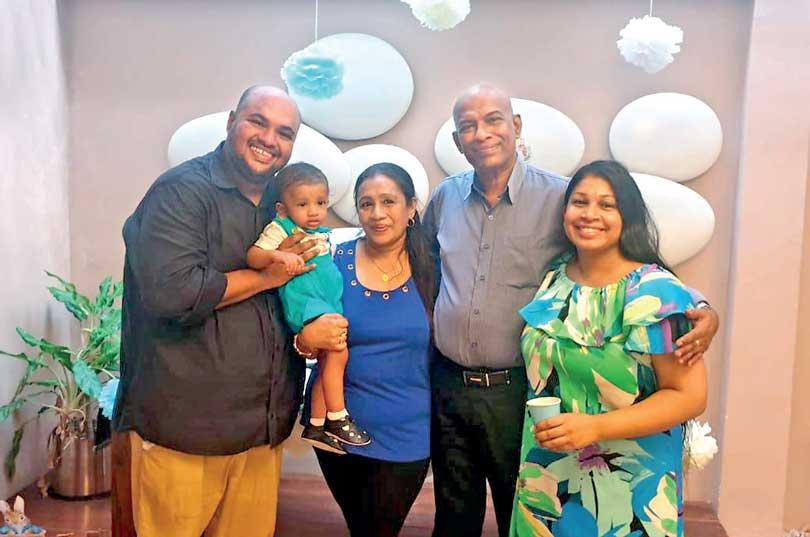
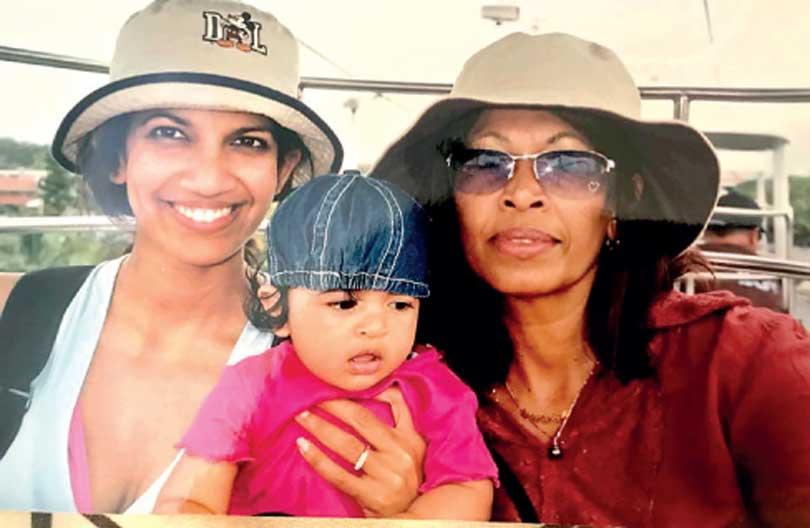
 Q Do you see a huge difference in how far women have come from the time you joined the air force and now?
Q Do you see a huge difference in how far women have come from the time you joined the air force and now?